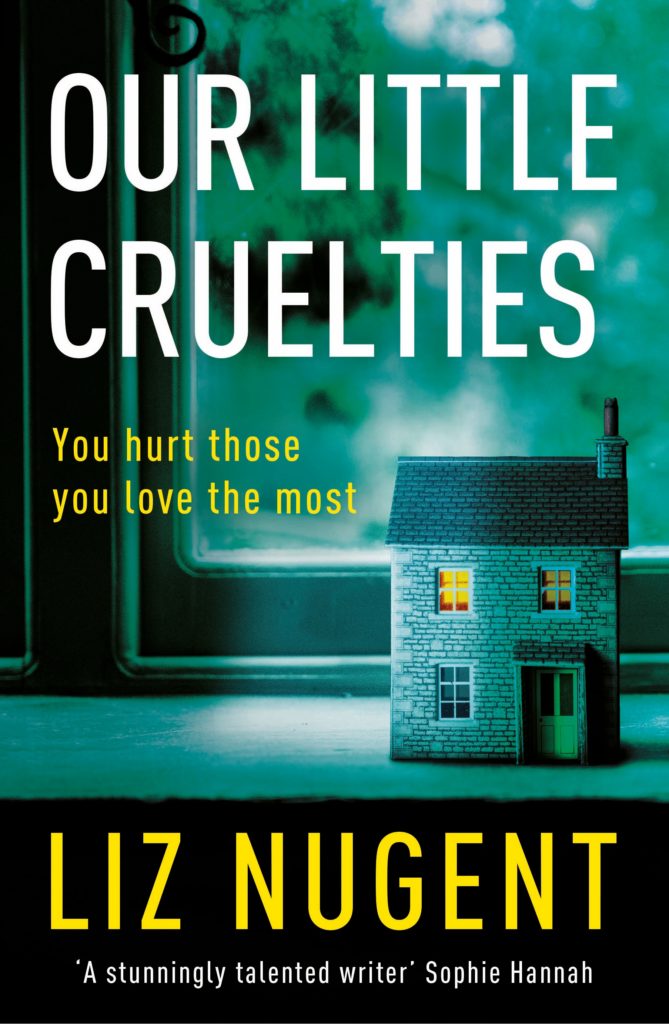
Our Little Cruelties
by Liz Nugent | Penguin Ireland |384pp | £12.99 pb | 9781844883950.
review by Paula O’Hare
Let me fast forward you into this. If you like John Banville and Eoin McNamee’s exercises in fictionalising real events, you will enjoy this. This is not in fact a real-life Dublin scandal recycled as literature but it has that feel, and it must be intentional. Two of the author’s previous books, Lying in Wait and Skin Deep, did as well.
Three aspiring brothers, in the arts, in Dublin. We are given the premise from the start—one of them is going to end up dead—we just don’t know who, or why. In their twenties everything is set fair and everything is possible—William is getting funding for a film; Luke is surfing an unexpected wave as a pop musician; and Brian is happy with a girl he likes. In their thirties William is established; Luke’s star has dipped but might be about to swing back up again; Brian could be managing Luke, or stepping in to mind William’s daughter. By middle age their lives and wives and finances and houses and girlfriends and careers and children have become inextricably intertwined.
That should be good: they could all benefit each other. But this is not the benign result of fondness or mutual support. It is the outcome of sibling rivalries since childhood, interfering in each other’s lives, causing harm, pretending it didn’t happen, covering it up and keeping on going to Sunday lunch in their mother’s house for years.
As they look back to their childhood, we see that first they were little boys with an angry ex-show-business mother who didn’t know how to get them ready for the world. Their young cousin dies of leukaemia, and no one knows how to talk to them about death. No one teaches them how to grow out of being cruel with each other, no one teaches them to be kind, and no one admits that Luke is not just a child who takes religion too seriously, but is becoming mentally ill.
So, they go along, pretending to get on together. William steals and marries Brian’s girlfriend. Luke collects one of William’s discarded girls and tries to marry her. Brian goes to Paris, comes back, becomes Luke’s manager, and they live in Luke’s giant house together. William’s daughter becomes an Internet success and Brian starts to manage her.
The similarity to fictionalisations of real events—the feeling that the storyline is an arbitrary given and the novel is the methodical workmanlike recounting of it—produces the nagging feeling that the reader should be spotting the ‘real’ story, but I think that’s an illusion. The story is told well, in rotation, from their three viewpoints, and moves forward and back in time. The structuring works, bringing you along through the entire book, feeling you are learning something, but not bouncing you ahead into its being obvious who did what and why. And then it all falls into place.
***
Paula O’Hare is a public sector lawyer who likes detective novels.












